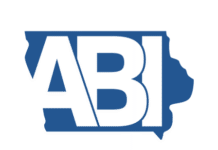Chad Pregracke is the founder of Living Lands & Waters, an environmental non-profit that was established in 1998 and has grown to be the only “industrial strength” river cleanup organization like it in the world. Chad’s work has been recognized widely over the years, including being named CNN’s 2013 Hero of the Year.
I talk with Chad about what motivated him to form Living Lands & Waters, the lessons he learned forming a 501(c)3 non-profit, and the obstacles (and sunken boats) he has overcome. Chad also shares his thoughts on how he manages his team’s time and resources, his work on other initiatives such as the Bison Bridge Foundation, and how initiatives at the city and county level are setting Iowa up for environmental success in the future.
I learned a lot and I think you will too. –Nate
Sponsored by MidWestOne Bank, this is the latest edition of the CBJ’s new podcast feature with Nate Kaeding and notable Iowa business and cultural leaders, available first to CBJ members. Listen to this episode below, and subscribe on Spotify, iTunes, Google Play, Stitcher and SoundCloud.
What were you doing before you started Living Lands & Waters?
I grew up on the Mississippi River and my brother started shell diving. We called it “clamming.” They take these shells and they’d punch a bead in them, and then they’d insert the bead in oyster farms over in Japan. I sorted shells with him for about a year, then I started diving on my own. I was a commercial shell diver from age 16 to 21.
It’s pitch black being down there, and you’ve got a big basket around your neck and a go-cart engine pumping air through a garden hose down to you. You just get down there and stay down there for two or three hours at a time. I did that for six summer seasons with my brother, and that’s where I started to see lots of garbage out there. And so that’s how I got into cleaning up. That’s also kind of how I was saving money to go to college.
You got your first sponsorships in 1997. When did it hit you that your river cleanup could be something bigger?
I just started working with a little 20-foot jon boat that was previously my clamming boat. I started just doing boatload after boatload out of the river, and people started noticing me out there and asked me what I’m doing.
They called the media. Quad City Times did a front page article back in the day. Then, essentially, CNN flew in for it. Fox news came in for it and Anderson Cooper from ABC. That’s when it took off.
What was great was I then had some video and I could show people what I was trying to do. And so around here kind of gained a little bit of momentum and that was pretty much it. I had one small sponsorship and then the next year, because of that attention, I got a little more and just built upon the momentum.
What do you think garnered that national attention?
It’s the Mississippi River. If it would’ve been some other random river, it probably wouldn’t have, but because it is the Mississippi River, people are starting to see it as something positive that should be cleaned up and is worth saving and promoting. Timing is a lot of it, but I think people want to see people doing good work. It wasn’t a master plan on my end. I just saw a problem and just started doing it.
You formed your non-profit in 1998. How did that change things for you?
I formed Living Lands & Waters. The next year would’ve been three years doing it and I knew this was going to be my life’s work. This is what I wanted to do. I liked the opportunity in that. I enjoyed working with different people at the companies and I liked cleanups. I liked seeing the results and doing something positive.
But I wasn’t well-versed in being a 501(c)3. I guess the lesson is that you don’t need to be good at everything. You just need people who are, and you just need to ask.
Are you a numbers guy? Is there a certain quantifiable goal you’re hoping to achieve?
No, I’m not a numbers guy, but you also want to justify what you’re doing, and if people are going to put something into it, I want to be able to tell them exactly what and how much we did.
I just knew that those numbers are impactful. Luckily we do have some numbers folks on our team now that are really adamant about how much tonnage comes in and all that. I do like touting the numbers and as the years go on, they just get more and more impressive. I think we’ve planted or given away 1.7 million oak trees. It’s good to have those numbers that can sum it all up but, at the end of the day, it just takes a lot of hard work and making all those things happen from a much bigger team than just me.
Was there ever a moment where you thought about giving up and moving on to something else?
No, I never thought about not doing it, but the first five years were just obstacles. I’ve had lots of boats sink and I had so many problems that first year. It was a great learning experience, but I just had to talk to myself: “You have to keep going, whatever happens. You just have to go through it, over it, around it, under it, whatever it takes. You just have to keep moving forward.”
Once I got into that mindset, that problems are going to happen all the time and that it is just what it is, that mindset helped out a lot.
There’s a lot of problems with what we do. You know, there’s a lot of logistics and everything we do. We have barges, towboats, cranes, excavators, fleets, work trucks and work boats. We work all over the country and in New York City, Washington D.C., Philadelphia, Pittsburgh, Kansas City, Memphis, Minneapolis, all over the place.
There’s all sorts of issues and each place has its own set of challenges. But I’d say that one of the things that people don’t realize is that we take safety very, very seriously. I look at the 120,000 people that have come to our cleanups. You have to be really safe and make it a memorable experience for those people. We focus a lot on that behind the scenes.
How do you determine the best way to allocate your team’s time and resources?
Each place is unique. We work in a lot of rural areas where there’s just not much momentum or focus on clean rivers. We try to work our way out, try to do a really good job. Sometimes, logistically, we just can’t get back there for two years or something like that. But we try to go into a place and build a lot of momentum, you know?
How do you combat cynicism or keep yourself from losing hope in this line of work?
I really haven’t fought it off. I really just do what I do and work as hard as I can every day. That’s all you can do, really.
There’s the towboat operators, fishermen, the random kayakers, bird watchers, and a lot of different people saying, “It just seems a lot cleaner than it used to be.” That’s enough proof for me. Just walking through a lot of the places that I once walked that were really trashed, and I feel like we’re making a big difference.
Have you seen a drop-off in trash being dumped into the rivers?
I know Iowa City has a great recycling program, as does Scott County here, and near Davenport. Those make huge differences. If people have an opportunity and don’t have to pay to take certain things in, you’re just going to see a lot less in the river.
It used to be that a lot more people just dumped in the river because there weren’t those recycling programs. But it comes from all over. The drainage basin for the Mississippi is 1.2 million square miles, and it drains from 31 states and two Canadian provinces. So the stuff comes from all over but it does seem like a lot less.
What drives you today versus what drove you when you began in 1997?
What drives me today is a 1993 Toyota pickup truck I bought for $3,500. It’s actually a legit stick shift. Old school.
What drives me is the ability to make big things happen, and knowing that it’s all those little steps. I have tremendous resources that I didn’t have then, so I can work on bigger things. This country is one of the greatest places in the world to make things happen and you can truly do it as an individual.
I like progression. I like moving forward. I like work. I like hard work. I like hustle. I like teams of people. I like big ideas and doing all the small steps to get there. I think that’s really what drives me. I have wonderful people around me.
What does success look like for you in 10 years? 15? 20?
I think that success is whatever you can do. There’s no 2050 year goal. It’s just to continue working hard every day.
You’ve taken on other initiatives, most notably the Bison Bridge project. Where did that idea come to you?
The Bison Bridge is basically Interstate 80 where it crosses the Mississippi. They’re going to build a new bridge in about five years. My goal is to keep the existing bridge, which isn’t some giant monstrosity. It’s the most simplistic bridge you could want to save. It’s 65 feet wide, so my thought was to use half of it for pedestrians and the other half for a wildlife crossing. I want a small herd of bison, which sounds kind of crazy to some, but it’s almost too big if you were to save it just for people, you know?
The wildlife crossing would make it a one-of-a-kind world attraction. It’d be amazing, but it’s really about the Mississippi. That’s the focus, you know? Seeing it from a different vantage point. What I want to do through Bison Bridge is make it similar to the St. Louis Arch. You make it iconic.
What’s the biggest hurdle right now for the project to move forward?
I believe the alignment of where the new bridge will be is conducive for the repurposing of the bridge. That was a big hurdle for us, and I’m not saying we’re over it. We don’t know where the new bridge will be, but based on the alternatives and the expertise on our team, we think we have a pretty good shot.
I just had my first Bison Bridge conference on the barge and we backed down under the bridge, then went up to the overlook, and that’s awesome. I don’t think money will be the issue and it’s totally privately funded. We’re not looking for any state or federal money. We don’t believe we need it..
What does the perfect afternoon look like for you?
To me, honestly, just getting garbage. Low stress and just doing as much as you can, but seeing the results. Maybe doing a few boatloads in a day. That’s what fun is to me. I really enjoy it.
Rapid-Fire Questions
If given the chance, what profession, other than your own, would you most like to attempt?
I wanted to be a professional snowboarder. Before I got into this, I spent a lot of time out west. That would probably be good. I’m older now though, so I don’t know if that’s still doable.
Who is someone that has really inspired you?
There is no one in particular. There’s just a lot of people that I took different things from, and I think I still do. My dad’s very persistent on getting things done.
What’s a podcast or TV show that you’ve been enjoying lately?
Randomly, I’ve been listening to some Joe Rogan. I watched the Elon Musk one. I’m not all the way through it yet, but I was like, “Wow, is Elon Musk pretty intelligent? And Joe Rogan is too?” I listen to a lot of music. I used to read a lot before COVID because I would fly to a lot of different places.
If you had 30 extra minutes in a day, what would you do?
Probably sleep. I need seven hours of sleep, because I put everything I’ve got into the day. If I get less than that, it’s okay. But I like to get seven or more if I can. I’ve been going to sleep pretty early now that I’m getting older.
How would you describe success in one sentence?
Results.




